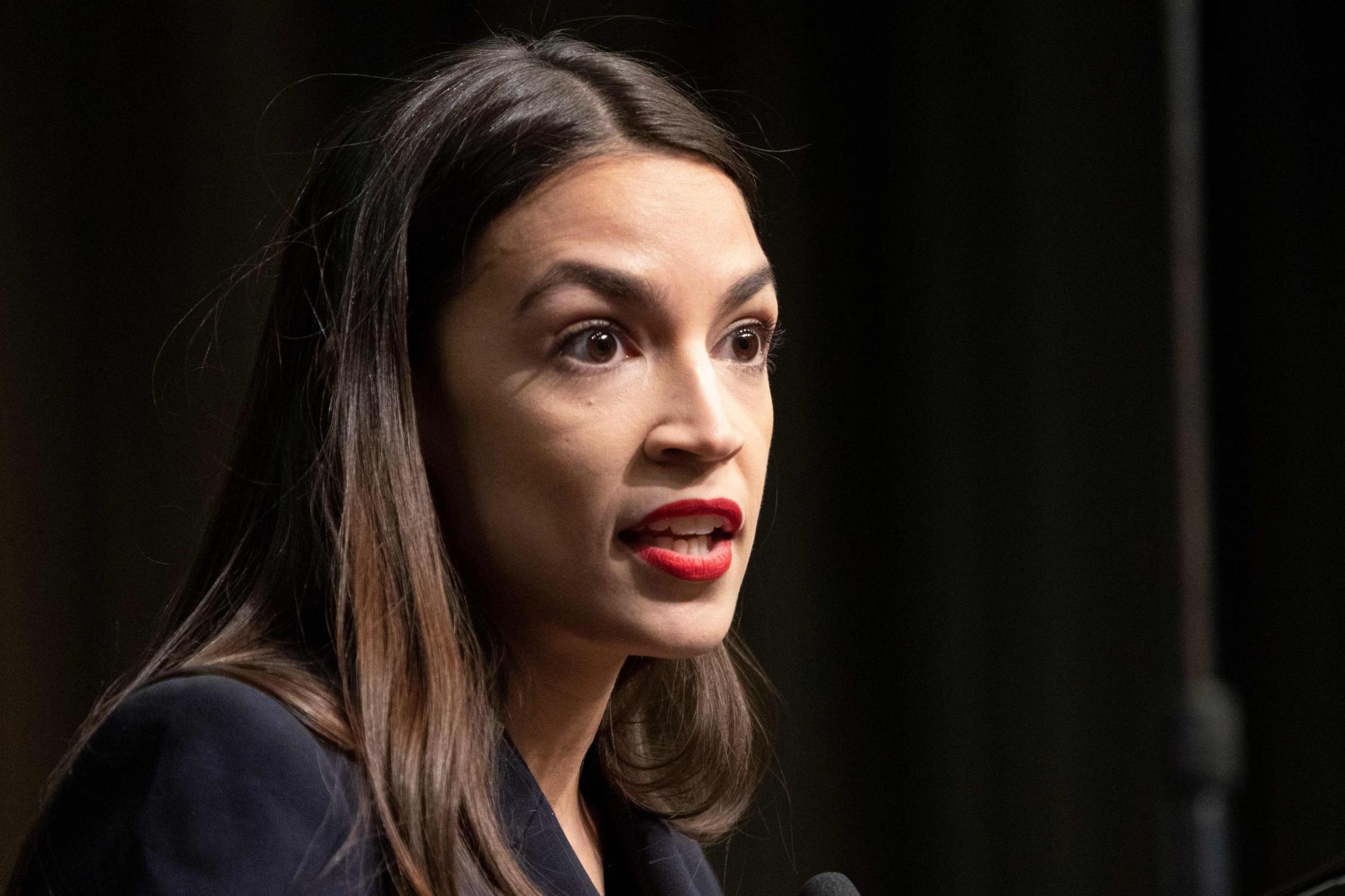The Independent's journalism is supported by our readers. When you purchase through links on our site, we may earn commission.
My family opened the first Japanese American concentration camp — that's why I know AOC is right about the southern border
A painful legacy burdens the life of the family I have made with my Muslim, immigrant husband, even as I find its echoes in Trump's camps today

Alexandria Ocasio-Cortez is right to call out what's happening in our southern border camps. I would know — because someone in my family opened the first Japanese American concentration camp in the United States.
Like so many parents of children of color, the day Donald Trump's election washed over a shocked America, I woke up dreading telling my nine-year-old Muslim son. When he heard the news of Trump's election, my son pleaded, "We have to plan our escape before Trump takes office and puts us into Muslim camps. Please, Mama." That heartbreaking conversation led me to the revelation that my great-great uncle, Clayton Triggs, was the first director of Manzanar, the US's first concentration camp for Japanese Americans during the Second World War.
For the past three years, I have researched the camps and personal accounts of Japanese Americans to try to quantify my relative's guilt in one of America's worst civil rights violations of the 20th century.
The camps inflicted a trauma on the Japanese American community that we cannot measure, but we must name.
My white ancestor lay the literal foundation of the Manzanar concentration camp. Would revealing the shameful part Clayton Triggs played in Manzanar overshadow all the good in our family, I wondered during my research? That legacy certainly burdens the life of the family I have made with my Muslim, immigrant husband, even as I find its echoes in Trump's concentration camps.
Last week a Trump administration lawyer said depriving children of soap, toothbrushes, and blankets to children qualifies as "safe and sanitary." Visitors to a Clint, Texas detention facility have likened it to "torture." They found "dirty, hungry, sick, scared" children held in cages, sleeping on cold concrete.
The lawyer's argument brings to mind a speech my relative, Clayton Triggs gave to Japanese Americans. He promised them the camp would afford them a "great latitude of freedom and self-governance," as if his words could erase their incarceration behind barbed wire.
I remember how Clayton Triggs built Manzanar's "Children's Village." These barracks became home to 101 young orphans for the duration of the Second World War; because of their Japanese ancestry, the US had deemed them "dangerous aliens" and incarcerated the children.
My relative requested permission to build Manzanar’s infamous five-string barbed wire fence and the eight guard towers from which soldiers would sit and point searchlights and live munitions down at these children.
But hearing of Trump's plan to resurrect a former Japanese American concentration camp, Fort Sill, to detain migrant children is when I realized that while I have been anguishing over the minutia of research, the past has returned and the future my son feared has arrived. Not for him, but for other children of color.
I believe these new camps for brown migrants are far more cruel than the ones Roosevelt created. But, at root, they are the same.
Japanese American survivors of the Second World War camps converged on Fort Sill bearing origami cranes and their stories of unjust incarceration as children to show solidarity. "We are here to protest the repetition of history," Satsuki Ina said.
“Safe and sanitary” and “Children's Village,” “summer camp” and “freedom”: then and now, the government uses language to hide and distort the truth. Like a family that hides its shame, too many Americans accept the administration's distortions rather than face that truth.
A concentration camp detains civilians because who they are, not what they have done. This was true in 1942 when my family member opened the first concentration camp for Japanese Americans and it is true in 2019 as Trump continues his “zero tolerance” policy of separating brown children from their loved ones and locking them in cages.
Viet Thanh Nguyen wrote shortly after Trump's election, "The struggle over the direction of our country is also a fight over whose words will win." Trump tells powerful stories, Nguyen argues.
We must fight Trump's tale of an invasion, of "animals" on our southern border by telling a more powerful story.
"We are all storytellers of… our American identities," Nguyen also wrote.
I want mine to be the story of an American who learned from her history and worked for a different future.

Join our commenting forum
Join thought-provoking conversations, follow other Independent readers and see their replies